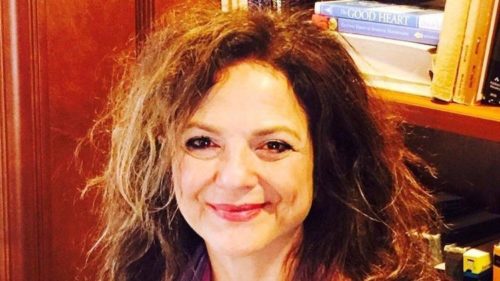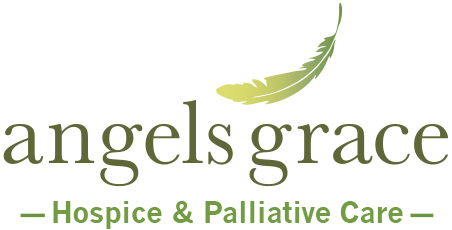Katherine Coutrakon finds inspiration in the darkest of places. You might even say death becomes her.

As a licensed clinical social worker with almost 40 years’ experience, she helps the terminally ill in their weeks and also grieving families. The experiences have taught her a lot, she says.
“It’s inspiring to see people dealing with the purity of their life. They know they are going and they just want to be peaceful. That’s when death is at its best,” she said from her office with Affiliates in Counseling in downtown Naperville. “It teaches you to show up for life, to stay in the moment.”
Coutrakon began specializing in hospice care after her mother passed away 17 years ago. For the past three years, she’s been working with Angels Grace Hospice in Bolingbrook. Despite her years of counseling others, the intensity of pain she felt after her mother died took her breath away.
“I knew it would hurt, but I didn’t expect it to feel so bad,” she said.
Coutrakon credits her mother with instilling in her a lifelong desire to help others. By doing so, she believes she’s fulfilling her legacy, something she recommends to grieving families.
“We were very close,” she said. “She died in my home just a few days after coming to live with me.”
Her mother grew up in Crete during World War II. After an arranged marriage to an American, she came to Chicago, where she had four children before her husband died.
“She grew up with death all around her. She knew something about pain,” Coutrakon said. “She said, ‘God will always bring somebody to help you, but you never know who it’s going to be. It may not be who you think it’s going to be.’”
Although the family had little money, Coutrakon’s mother always helped her neighbors and delighted in cooking for them all.
“She was like the first social worker,” Coutrakon said. “Death was all around her in Crete, then it followed her here, but she raised us all to be good citizens.”
All her siblings are in caring professions. Coutrakon does not shy away from other people’s pain.
“People are inspiring. They deal with unimaginable pain and trauma with grace,” she said.
While working in California, Coutrakon remembers one particularly tragic case. After a young mother was diagnosed with terminal breast cancer, she met with both her and her family regularly.
“By the time I met her, she was referred to hospice and no more treatment was available,” Coutrakon said, adding that typically patients begin by hoping for a cure, but if they discover their days are limited, they hope for a peaceful death.
The patient had a mother, ex-husband and three children between the ages of 11 and 16. Coutrakon encouraged her to write letters to them, making her intentions clear about how she would like them to continue their lives without her.
“When you work in hospice care, you have a team around you, which helps you stay neutral,” she said. “Your job is to help others, so you have to be client-centered. They have needs which have to be met so their life can move in the direction it needs to go. This involves a lot of legacy work with honest, difficult conversations with family members. This particular family had deep faith, so the parents used the time to teach spiritual beliefs to their children.”

